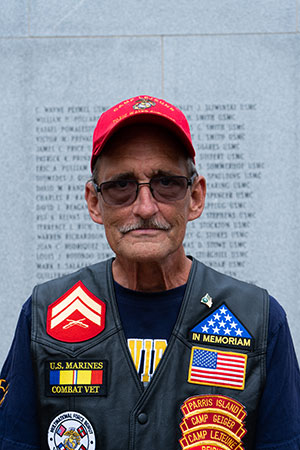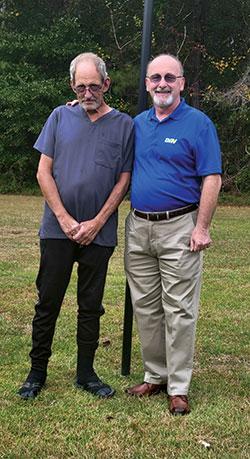
On Oct. 23, 1983, a suicide truck bomber attacked the Battalion Landing Team headquarters in Beirut, killing 220 Marines, 18 sailors and 3 soldiers. It was the Corps’ largest loss of life in a single day since the Battle of Iwo Jima in 1945.
Forty years after the bombing, the veterans of Beirut and the families of those who perished there are still haunted by the tragic loss, even as many continue to fight a different battle.
Among the survivors and veterans of the peacekeeping mission in Beirut, an invisible enemy was unleashing a deadly attack from within. Many of those Marines had been stationed at Marine Corps Base Camp Lejeune, North Carolina, from 1953 to 1987 and unknowingly ingested toxic chemicals that had polluted the groundwater there.
Keith “EZ” Ezell deployed to Beirut with 1st Battalion, 8th Marine Regiment, as the country was embroiled in the civil unrest and bloodshed that would lead to the barracks attack.
“We weren’t there on a combat mission at all—though it turned into one,” he said. “We got toward the end [of our deployment] and the bombing happened. We were less than a month away from going home.”
While Ezell was not wounded in the attack, the enormity of what had happened was difficult to process. “I didn’t really understand the outcome of it all,” he said. “At the time, I was just glad to be home.”
Ezell was fortunate to survive his tour in Beirut. Later in life, though, he would face an invisible foe lurking within his own body. An aggressive form of bladder cancer had been waging a secret war against him.
According to the Department of Veterans Affairs, scientific and medical evidence points to the development of certain diseases, including bladder cancer, as a result of toxins in the water at Camp Lejeune.
In his time of need, Ezell was able to turn to a fellow Marine veteran of Beirut, Don Inns.

As a DAV benefits advocate, Inns has dedicated his post-service life to advocating for his fellow veterans and their families.
“I consider it an honor to assist veterans of any era and their families,” Inns said. “But it feels incredibly special to be there for those who served in Beirut.
“Sometimes we feel forgotten or overlooked. I know that through my benefits work, I’m able to do my part to ensure their sacrifices are remembered.”
Because of Inns’ diligence, the VA approved Ezell’s claim for service-connected bladder cancer. Additional benefits—such as Service-Disabled Veterans Life Insurance—were also granted.
Unfortunately, Ezell lost his battle with bladder cancer on March 15 this year.
“Before Keith had passed away, he wanted to make sure that his wife, Kim, was taken care of,” Inns said. “Since his passing, I submitted Kim’s claim for Dependency and Indemnity Compensation, which the VA has granted. I’m glad that DAV could be there when Kim needed us most. That’s a promise I made to Keith.”
“DAV is more than just a name or an acronym; it’s people that have been there and been through it and have gotten the background to understand how to [file for benefits through a VA disability claim],” said Kim.
The intertwined tragedies of the Beirut bombing and the poisoned water at Camp Lejeune have irreversibly affected the lives of thousands. But for Inns, as well as the other Beirut veterans and those affected by the poisoned water at Camp Lejeune, the battle continues.
Did you know?
“We will keep fighting, whether for recognition of what we endured in Beirut as we attempted to bring peace to Lebanon or for those who were poisoned back home,” Inns said. “Like the Marines, DAV is not afraid to stay in the fight, especially for those who cannot fight for themselves.”
– Don Inns, DAV benefits advocate





